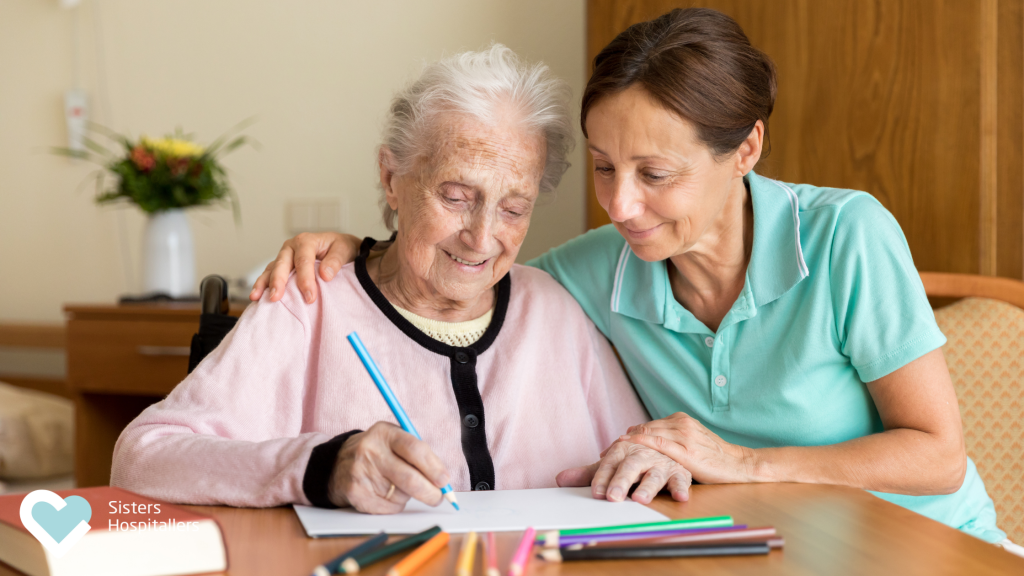
When many people think of dementia, the first thing that comes to mind is memory loss. While that is a hallmark of the condition, dementia’s impact goes far deeper—and it’s important to understand the full picture to provide truly compassionate care.
At Sisters Hospitallers, we see every day that dementia affects a person’s emotions, their ability to communicate, and even their sense of self. It can change how they experience the world around them—how they hear sounds, recognize faces, or interpret feelings.
People living with dementia often face feelings of confusion, frustration, or fear as they navigate a changing reality. But they also experience joy, love, and moments of clarity that reveal who they truly are. It’s our role as caregivers and family to tune in to these emotional cues and respond with kindness.
For example, a resident might not remember recent events but can still smile warmly when hearing a favorite song or being gently touched. These experiences hold meaning beyond words.
Dementia may alter some abilities, but it doesn’t erase the person’s history, values, or dignity. At Sisters Hospitallers, our care philosophy focuses on recognizing the whole individual. We strive to create environments where people feel safe, respected, and connected.
This means adjusting our communication, being patient, and offering support that honours their identity and preferences. Compassion in every moment makes a profound difference—not only in how someone with dementia feels but in the quality of their daily life.
If you know someone living with dementia, remember that your empathy and understanding go a long way. Listen attentively, look beyond memory lapses, and cherish the unique person behind the condition.
This Dementia Action Week, let’s deepen our understanding—because true care comes from seeing the person, not just the symptoms.